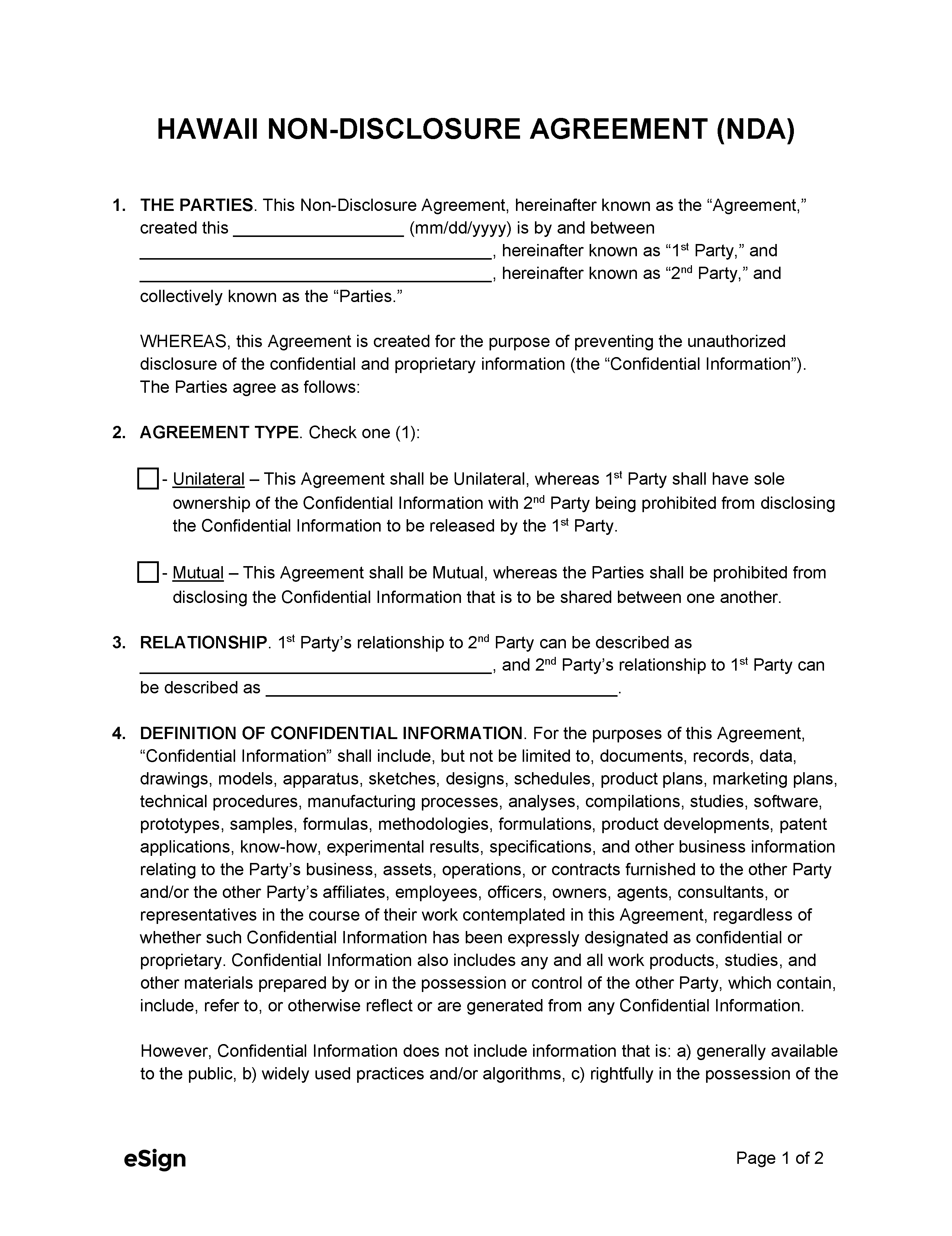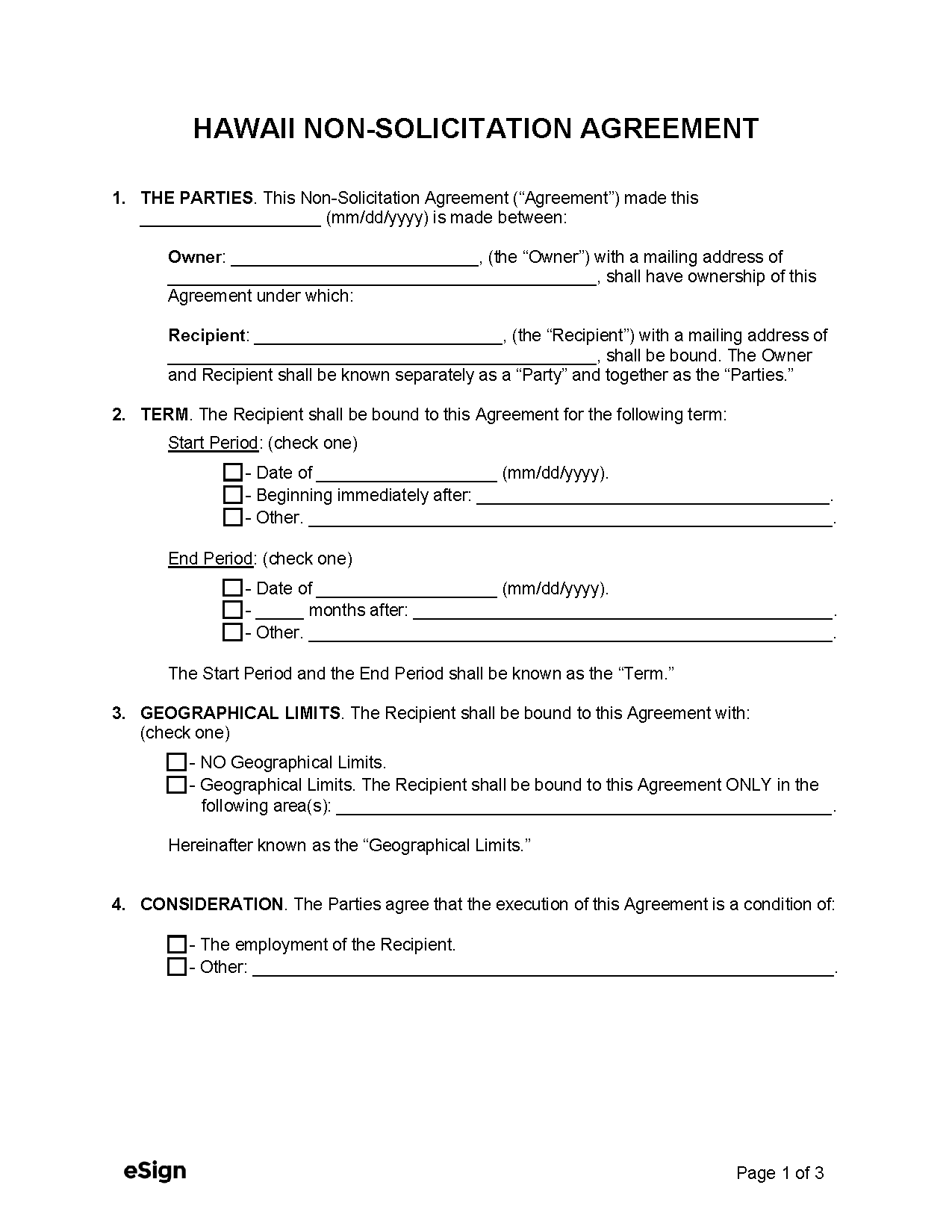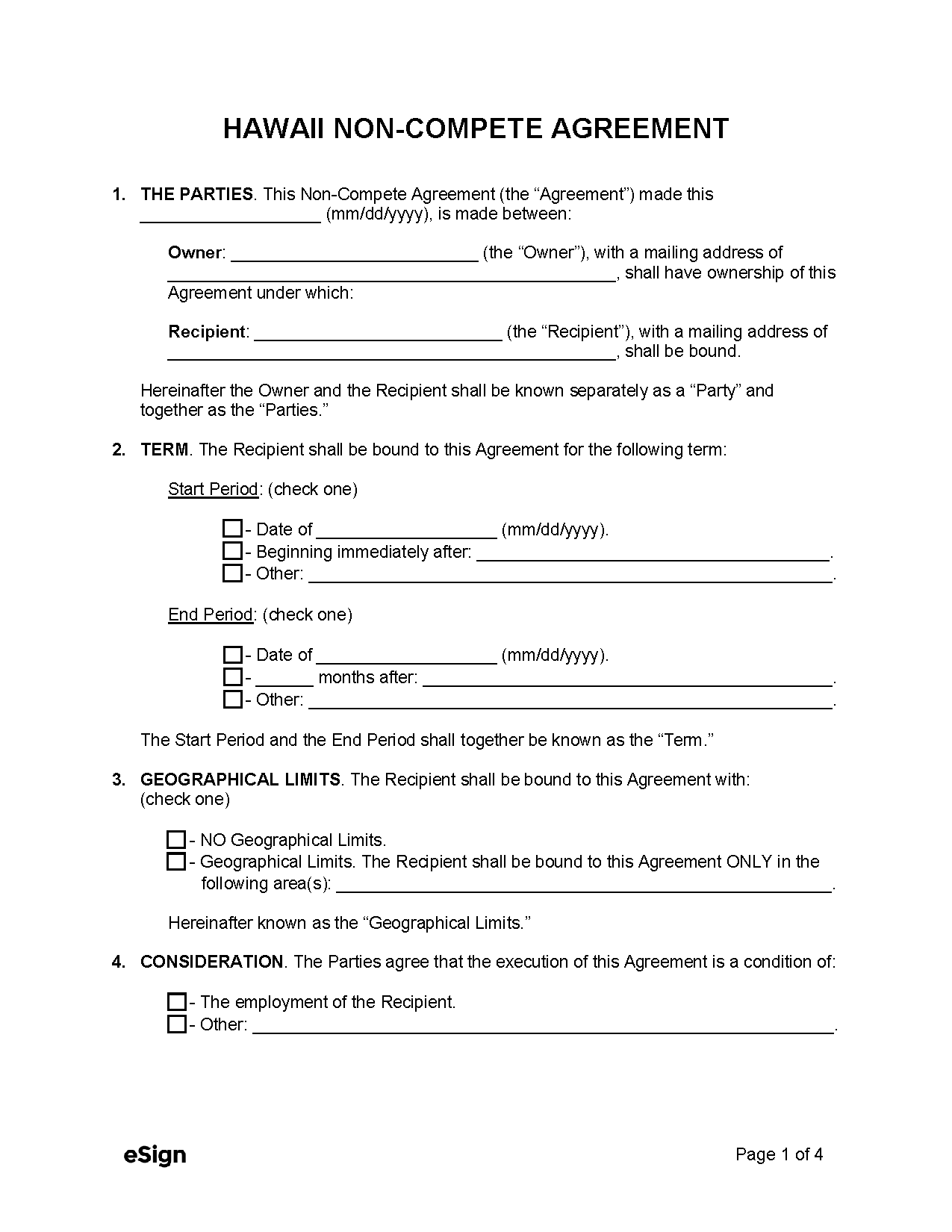The geographical area limited by the non-compete must be limited to where the employer can prove that they have a protectable interest.
To prevent potential misuse, courts uphold a contract’s restrictions if they can be proved necessary and reasonable, and do not inflict undue hardship on the signing party.
Contents |
Enforceability in Hawaii
Non-compete agreements are enforceable in Hawaii if they comply with § 480-4 of the Hawaii Revised Statutes. The contract must be limited in duration and must not cause undue hardship on the restricted party
Furthermore, the agreement must be executed in support of a “legitimate purpose,” such as an employment contract or another agreement that does not violate state code.[1]
When it IS Enforceable
- Trade secrets. A non-compete agreement may prevent an employee or agent from using their employer/principal’s trade secrets to their own benefit.[1]
- Partnerships. A partner may be prohibited from competing with a partnership after leaving it.[1]
- Sale of a business. A person transferring ownership of a business to another party may agree to refrain from competitive activity against the new owner.[1]
When it’s NOT Enforceable
- Lawyers. A lawyer is prohibited from entering into an agreement to prevent them from practicing law (unless the restriction is part of an agreement involving retirement benefits).[2]
- Information technology. A non-compete may not restrict a person working in the information technology or software industry (unless it is for the protection of their employer’s trade secrets).[1]
- Create a monopoly. The effect of executing a restrictive covenant cannot contribute to forming a monopoly or significantly diminishing competition.
Maximum Time Period
Hawaii statutes do not define any maximum duration for non-compete agreements. The courts will deem a restriction unenforceable if it meets any of the following criteria (known as the “reasonableness analysis”):
“1. It is greater than required for the protection of the person for whose benefit it is imposed;
2. It imposes undue hardship on the person restricted; or
3. Its benefit to the covenantee is outweighed by injury to the public.”[3]
In previous rulings, the courts have found three (3) years to be a reasonable restriction.[3]
Geographical Area
There are currently no state statutes governing how geographic scopes of non-compete agreements should be construed. Similar to a non-compete agreement’s duration, a restriction’s geographic scope must pass the court’s “reasonable analysis” for it to be enforceable. A restriction encompassing Hawaii and one (1) other state has been enforced in a previous case.[4]
Consideration
Employment is sufficient consideration for a court to uphold a non-compete agreement.[4] In one case, a federal district court stated that an employer providing an at-will worker continued employment is satisfactory consideration for a post-employment restriction.[5]
Sources
- Haw. Rev. Stat. § 480-4
- Haw. R. Prof. Cond. 5.6
- 7’S Enterprises, Inc. v. Del Rosario, 111 Haw. 484, 143 P.3d 23 (Haw. 2006)
- Technicolor, Inc. v. Traeger, 57 Haw. 113, 115-22, 551 P.2d 163, at 166, 170 (1976)
- Standard Reg. Co. v. Keala, No. CIV. 14-00291 JMS-RL, 2015 WL 3604265, *10 (D. Haw. June 8, 2015)
Related Forms (2)

Download: PDF, Word (.docx), OpenDocument

Download: PDF, Word (.docx), OpenDocument
